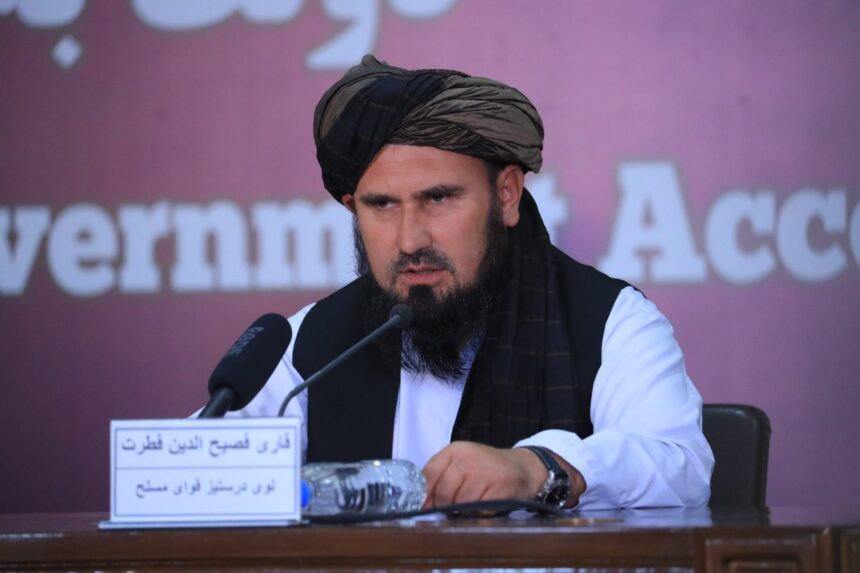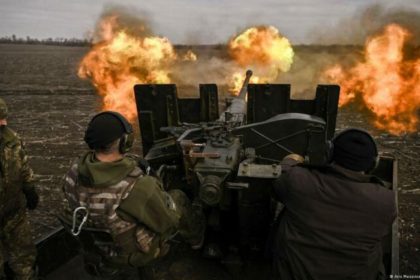RASC News Agency: Clear signs are emerging that power within the Taliban is increasingly monopolized by a hardline faction centered in Kandahar and loyal to Supreme Leader Mullah Hibatullah Akhundzada. This consolidation is coming at the direct expense of non-Pashtun figures especially ethnic Tajiks who are being systematically sidelined in what analysts describe as an ethnocratic reshaping of the Taliban’s command structure. One of the most prominent victims of this quiet purge is Qari Fasihuddin Fitrat, the Taliban’s nominal Chief of Army Staff and its most senior Tajik official. Once hailed by Taliban media as a key architect of the group’s northern military campaigns, Fasihuddin now finds his influence dramatically curtailed both militarily and economically.
According to credible sources within the Taliban’s own Ministry of Defense, hundreds of his loyalists particularly in his home province of Badakhshan have recently been dismissed from their posts. This expulsion comes without formal explanation but is widely interpreted as part of a broader strategy to eliminate any autonomous power centers not aligned with the Kandahar leadership. What’s more, key natural resources in Badakhshan and Takhar provinces previously under the informal control of Fasihuddin’s network are now being transferred to commanders more closely tied to the Taliban’s southern Pashtun elite. The recent arrival of Haji Wafa, Taliban governor of Balkh and a close associate of the Kandahar clique, in Badakhshan is seen by observers as a direct message: submit to central command or face complete exclusion.
Though Fasihuddin retains the lofty title of Chief of Army Staff, he exercises little real authority. His movements are reportedly restricted to the northeast of the country, with no meaningful presence or participation in policy decisions within Pashtun-majority regions. The Ministry of Defense, headed by Mullah Yaqoob son of the Taliban’s founding leader Mullah Omar has become a closed circle for loyal Pashtun operatives. Key appointments continue to reinforce an exclusionary system that pushes non-Pashtuns to the margins. This ethnic sidelining of Tajik figures mirrors earlier patterns of exclusion inflicted upon Taliban-affiliated Uzbeks. Following the fall of the previous government in 2021, Qari Salahuddin Ayoubi, an influential Uzbek commander, was gradually removed from all official positions despite having played a critical role in the Taliban’s northern offensives. Today, neither he nor any of his allies hold senior positions within the Taliban’s security or intelligence apparatus.
Recently leaked documents reveal an even more troubling trend: the Taliban leadership issued orders to reduce staffing by 20% across the Ministries of Defense, Interior, and Intelligence but disproportionately targeted non-Pashtun personnel. This reveals a calculated plan not merely for political centralization but for ethnic purification of the Taliban’s governing structure under the guise of administrative reform. Analysts argue that the Taliban is pursuing a slow-motion ethnic cleansing within its ranks, deliberately minimizing the presence and power of non-Pashtun figures while maintaining a facade of unity. This silent purge executed gradually and without media fanfare ensures that no resistance can take root before it is entirely dismantled.
For Qari Fasihuddin, the writing is on the wall. He now stands at a critical crossroads: either acquiesce to the erosion of his influence and accept symbolic irrelevance, or challenge the power structure and risk being completely purged, much like his Uzbek counterpart. The fate of Qari Salahuddin should serve as a clear warning. So far, Fasihuddin has remained silent possibly out of fear, possibly in the hope that strategic patience might preserve his position. But in a regime where ethnic identity now determines political survival, silence may no longer be a viable option.
The Taliban’s internal consolidation is not merely about governance it is about imposing a mono-ethnic Pashtunist regime under the cover of Islamic legitimacy. As they entrench this dominance, voices like Fasihuddin’s are being muted, one by one, leaving little space for ethnic diversity or dissent within what is increasingly a totalitarian power structure.






